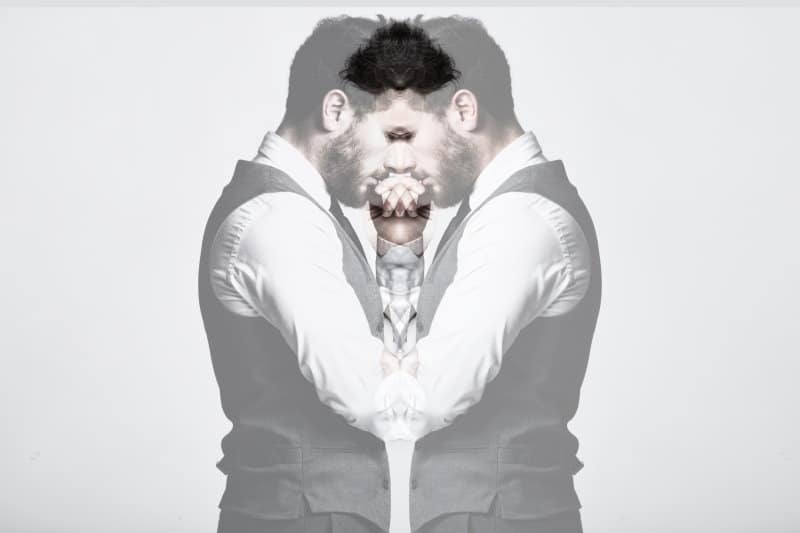Do Narcissists Have Free Will? What You Need To Know
*We may earn a commission for purchases made using our links. Please see our disclosure to learn more.
This is a question that’s difficult to answer, in part because the answer is not just a simple yes or no. We tend to think of people with certain mental disabilities or conditions as not being responsible for their actions, but is that true with narcissistic personality disorder (NPD)? It’s hard to disentangle what anyone might understand about their own behavior, but the issue is more complicated in someone with a personality disorder.
Assigning a healthy person’s idea of normal human behavior to someone with NPD is not helpful. It is possible for some narcissists to realize they have a problem and even change, but to have free will to make changes, you have to understand there’s a problem, and that is rare in the narcissist.
Part of the problem with NPD is that those afflicted with such a mental disorder operate through an egoic construction, and they’ve usually been doing it for so long that they don’t recognize it isn’t normal. Read on to gain more insight into how the mind of a narcissist operates and why the concept of free will is not as straightforward as you might think.
How Do Narcissists Think?
Does the narcissist make conscious choices or simply operate in a kind of automatic way without realizing the harm they do to others? The answer may really be yes and no. The narcissist operates through an egoic construction known as the false self.

The false self is really a defense mechanism that the narcissist constructed in their childhood in order to avoid what they came to believe is a flawed true self. They buried the true self out of intense feelings of shame and self-loathing.
The false self, however, is very insecure and has no ability to soothe or prop up the narcissist’s self-esteem. A healthy person has an inner being that unfolds into the outside world, but the narcissist has turned this concept inside out. Instead, their sense of self operates from the outside in.
The narcissist’s false self is dependent on external validation from people in the narcissist’s life. It’s basically an empty shell that constantly needs to be filled and made to feel worthy and accepted. Moreover, it will never truly be full or at peace which is why the narcissist continues to require a supply of adoration and admiration from outside sources.
This need translates into a fear of criticism, vulnerability, and exposure. The false self is unable to generate a sense of self-worth or self-acceptance which is why narcissists can’t detach from the input of the people in their lives. They need it desperately, and they need it to be positive.
The Narcissist and the Concept of Free Will
Given the way narcissism develops, most narcissists have been acting the way they do out of a sense of self-preservation for a long time. They are wholly dependent on the people around them for their sense of self-worth.
They know they need this and they fear losing it, but they may not realize consciously that they have a problem. They have been doing what they do and thinking the way they do for most of their life, so to them, it seems normal.
In that sense, it’s not that they don’t know what they are doing, they just don’t understand that not everyone thinks the way they do. In fact, they tend to look at other people as mere extensions of themselves so they assume that they are acting with the same motives as the narcissist does.
That’s why they can’t fully trust what someone tells them they feel for them. If you tell a narcissist you love them, they will often think you have an ulterior motive because when they express such emotions, they have an agenda.
Do Narcissists Know When They Hurt Other People?
What narcissists know is that they need other people to help them establish their identity in the world. They aren’t able to create that identity from an inner sense of self, so they need the feedback of others.

They do know they need this, and they act consciously to manipulate other people in order to ensure they stay in their life. Part of that identity is often a grandiose sense of power that the narcissist has imposed on the structure of the false self.
They believe their means justify the ends when they act to accommodate their false self. They believe themselves to be protecting the self from narcissistic injury, and therefore, they see their actions as a normal way to act. It’s a distorted view of the world that developed as a result of childhood trauma.
This maladapted way of thinking prevents the narcissist from having empathy for the consequences of the way they treat other people. They believe other people think the same way as they do, and they don’t then feel accountable for their own actions.
They are justified, and since they believe other people don’t genuinely care about them, they don’t feel a need to be concerned about others’ needs or desires. They don’t feel as though they need to care about whether they are hurting others.
Though they might know they have hurt you, they feel justified in their actions because they did it to preserve the false self, and moreover, they believe you should be concerned about that too.
Do Narcissists Ever Know When They’re Wrong?
When a narcissist feels they have done something wrong, they experience a sense of conflict with their constant need to feel good enough. That conflict is agonizing for them.

The narcissist has long felt their true self is ‘wrong,’ ‘not good enough,’ and eternally flawed. These are messages they learned from an early age whether from outright abuse or overprotective parents who never let them try to do anything.
This is what caused the initial collapse of the true self and the subsequent construction of the false self. It was genuinely a defense mechanism to help the narcissist escape the self-loathing and feelings of helplessness they were experiencing.
To face that they have done something wrong or may have made a mistake is contrary to those pathological, grandiose ideas they have imposed on the false self as a result of their childhood trauma. It makes them feel vulnerable and fearful that their true nature will be exposed and everyone will see how flawed they really are.
As former therapist Signe Adam notes, “Many of these people are highly intelligent and can develop insight. Once they let in the concept that their dysfunctional childhoods help create their personality disorder and stop idealizing their pasts, they can use those brains and the pain they feel to motivate them to heal and CHANGE. It takes hard work and it takes time. Very few can tolerate what is required.”
It’s a sad situation that might prompt a sense of compassion for the individual suffering from this personality disorder. It also explains why they have constructed the version of reality they have, and it’s valuable to understand that for the narcissist, this is their reality. In that sense, though the narcissist has free will, they are more limited in the choices they can make because of their fears.
Final Thoughts
Asking whether a narcissist has free will or not is like asking if an alcoholic can choose to stop drinking. Yes, they can, but it’s not a simple process. Likewise, a narcissist can choose to behave differently if they are able to have enough self-awareness to understand their actions are hurtful.
Unfortunately, that doesn’t happen very often because narcissists have such a distorted sense of reality that they can’t see how their actions and choices impact the ones they love. They also can’t trust the feelings other people proclaim for them. It’s a tragic situation really, but it also doesn’t justify their behavior in anyone else’s mind other than the narcissist themselves.
With a little more insight into whether a narcissist has free will or not, it can help to understand the common myths about narcissism and why they aren’t true. This blog will give you some important information about this devastating personality disorder.
--
If you want more tips for dealing with narcissists, setting boundaries, and managing emotional triggers, make sure you subscribe to my youtube channel




